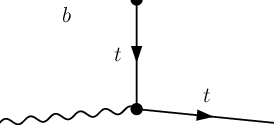 It was the prototypical professor’s office. Book lined shelves, stacks of paper on most horizontal surfaces, ivy-covered walls visible across the courtyard. The day before, we had paid a visit to a potential case site. I was a newly-minted case writer meeting with my boss, Professor Cash. I was a former student and had left a lucrative consulting job In a quest to obtain a doctoral degree.Â
It was the prototypical professor’s office. Book lined shelves, stacks of paper on most horizontal surfaces, ivy-covered walls visible across the courtyard. The day before, we had paid a visit to a potential case site. I was a newly-minted case writer meeting with my boss, Professor Cash. I was a former student and had left a lucrative consulting job In a quest to obtain a doctoral degree.Â
Professor Cash would eventually become my thesis advisor, but we weren’t there yet. Cash had confidence in me; the admissions committee was more skeptical. Let’s just say that my academic transcripts displayed a significantly wider distribution of grades than they were accustomed to seeing. The compromise was to work as a case writer for a year and the admissions committee would take another look then.
We were meeting that morning to review our visit to the case site and discuss how to approach writing my first ever business case. As I student, I had read and analyzed on the order of 2,500 cases. This was the first time inside the sausage making.Â
“Where’s your trip report?” was Cash’s opening question. The stupid look on my face would have terrified the admissions committee; Cash was more forgiving.
What he expected was to see my semi-legible, incomplete, and partial notes transformed into a coherent narrative of the previous day’s interviews. After spot checking my first few trip reports, Professor Cash didn’t bother to read them. They were for my benefit. If I was to create a case study that would work in the classroom, I needed to get my thinking out of my head and available for inspection.
This was the moment when I first began to grasp that thinking wasn’t something that happened exclusively inside your head. Most of the signals and clues we encounter encourage the notion that thinking occurs between your ears. Think of the penalties for referring to your notes during most examinations.Â
The most powerful counterexample comes from a biography of Nobel-laureate Richard Feynman by James Gleick
[Feynman] began dating his scientific notes as he worked, something he had never done before. Weiner once remarked casually that his new parton notes represented “a record of the day-to-day work,†and Feynman reacted sharply. “I actually did the work on the paper,†he said. “Well,†Weiner said, “the work was done in your head, but the record of it is still here.†“No, it’s not a record, not really. It’s working. You have to work on paper, and this is the paper. Okay?†James Gleick Genius: The Life and Science of Richard Feynman
If Feynman depended on thinking outside of his head, it’s probably a sound strategy to adopt if you aspire to do meaningful work.Â